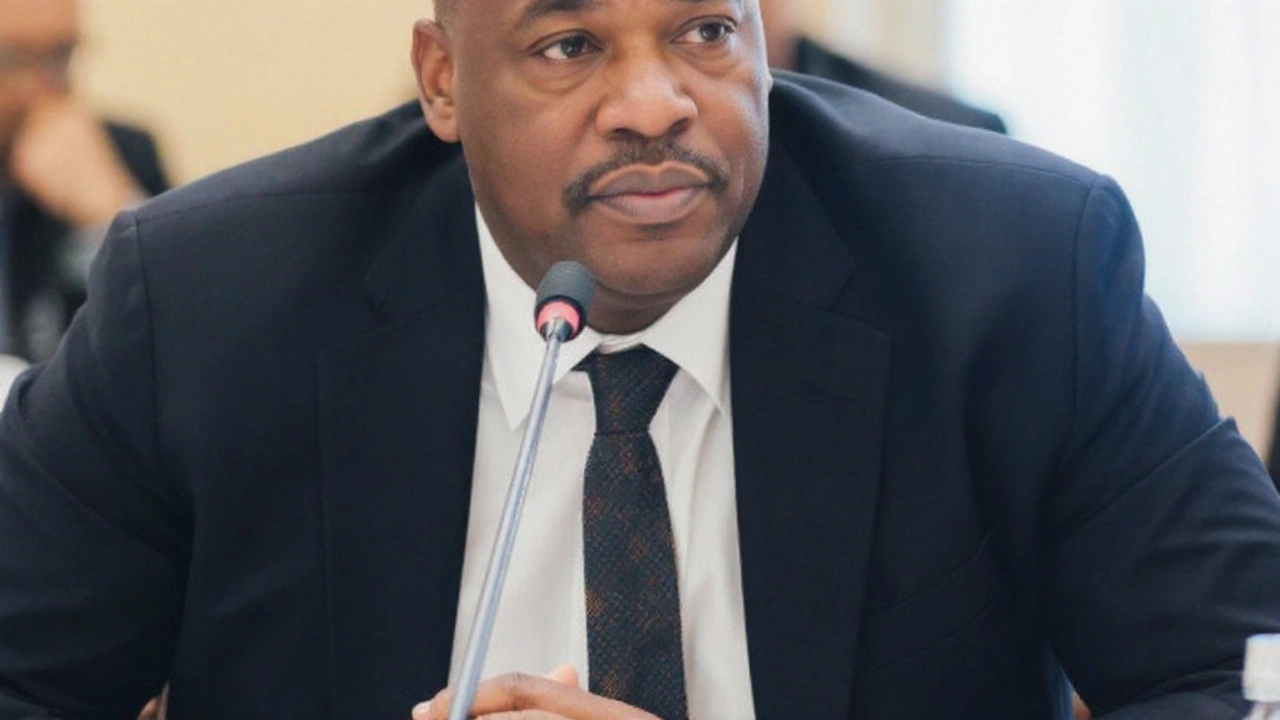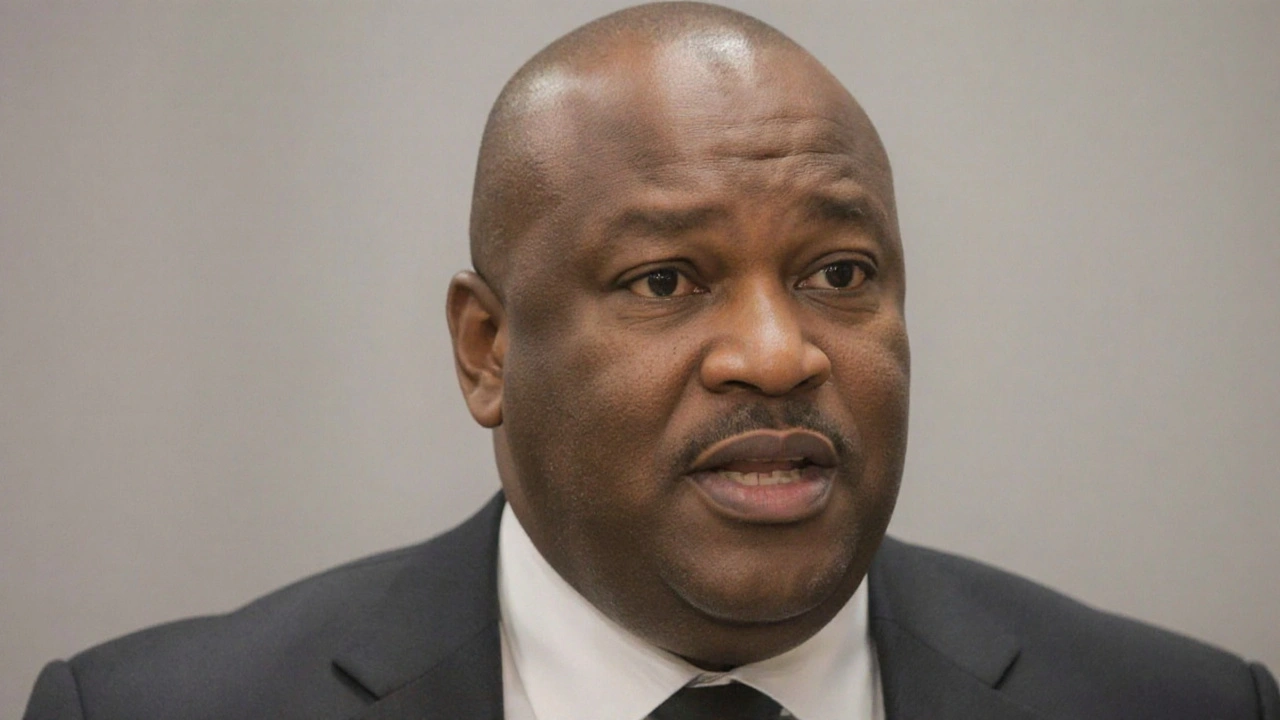The Allegations and McKenzie's Defense
During a routine briefing to supporters, Gayton McKenzie flatly rejected any need to apologise for what he calls fabricated racism accusations. He insisted the controversial posts circulating online were not his own statements but excerpts of other people's remarks that he was merely quoting. "I have not said racist things," he said, "and I will explain everything that was said there."
McKenzie claims the social‑media snapshots have been cherry‑picked to paint him as a bigot. According to him, a full context review would reveal he was responding to, rather than endorsing, the offensive language. He added that his legal team is already drafting a defence, and that he is prepared to let the Constitutional Court decide the matter.
The South African Human Rights Commission (SAHRC) says there is prima facie evidence that the minister may have breached the Equality Act. The commission’s preliminary finding triggered a formal investigation, and it has reached out to McKenzie's office for comment. Lawyers for Human Rights have also sent correspondence, offering McKenzie the chance to defend himself publicly.

Political Fallout and Legal Battle
Opposition parties wasted no time. ActionSA lodged a formal complaint with the SAHRC, demanding an immediate inquiry. The Democratic Alliance’s John Steenhuisen called for swift action against the minister, while the Economic Freedom Fighters labelled him hypocritical for denouncing racism while allegedly making racial slurs himself.
Despite the mounting pressure, McKenzie says he will not step down. He argues that the accusations are part of a broader political campaign to undermine his reputation and the Patriotic Alliance’s standing. "The attacks are politically motivated," he told his followers, adding that he will stay in his ministerial post until the courts say otherwise.
- ActionSA – filed a complaint with SAHRC.
- Democratic Alliance – public calls for removal.
- Economic Freedom Fighters – accused McKenzie of hypocrisy.
- Patriotic Alliance – backs the minister, saying the claims are baseless.
Legal experts note that the Equality Act is a powerful tool against hate speech, but it also protects free expression when context is considered. Should the case reach the Constitutional Court, the judgment could set a precedent for how political figures’ social‑media activity is judged in South Africa.For now, McKenzie remains defiant, insisting that the investigation will clear his name and that any decision to remove him must come through due process, not public outcry alone.


om biswas
September 27, 2025 AT 08:36McKenzie is playing the victim card and it’s laughable.
sumi vinay
September 27, 2025 AT 09:26Everyone deserves a fair chance to explain themselves, and the courts can provide that neutral ground. Let’s hope the process is transparent and the truth comes out without endless political bickering.
We can’t let hate speech accusations become a tool for silencing dissent, but we also must protect marginalized voices.
Anjali Das
September 27, 2025 AT 10:33McKenzie’s denial reeks of dishonesty and he’s clearly trying to hide his own words from the public eye. The snapshots are enough to show a pattern of bigotry that he refuses to own.
Dipti Namjoshi
September 27, 2025 AT 11:40It’s important to consider the broader context before jumping to conclusions. Even if harsh language appears, it might be a response to provocation rather than endorsement. Dialogue and understanding are crucial for healing, especially in a nation still grappling with its past.
Prince Raj
September 27, 2025 AT 12:30From a legal perspective, the prima facie evidence cited by the SAHRC triggers substantive procedural safeguards. The Equality Act mandates a rigorous burden of proof, and the defence can invoke the contextual exception to mitigate liability. Moreover, jurisprudence on political speech underscores the necessity of a high threshold for hate speech findings, especially when the speaker is a public official. The upcoming constitutional adjudication will likely hinge on whether the quoted excerpts constitute direct incitement or merely a reactionary commentary.
Gopal Jaat
September 27, 2025 AT 13:36I must say, this spectacle is reminiscent of earlier scandals where politicians tried to dodge accountability through grandstanding. The drama surrounding McKenzie only fuels public cynicism about our leaders.
UJJAl GORAI
September 27, 2025 AT 14:43Ah, the noble pursuit of justice, cloaked in legalese and lofty rhetoric. One can only marvel at how quickly the narrative shifts from accountability to self‑defence. The defence counsel will undoubtedly argue that the alleged remarks were taken out of context, a defence that has become almost textbook at this point.
Definately, the court will have to weigh the intent against the impact, a delicate balance that few manage to strike.
Satpal Singh
September 27, 2025 AT 15:50Respecting the rule of law is paramount, and every party involved should abide by the investigative findings. It is essential to maintain a civil discourse while the facts are being examined.
Devendra Pandey
September 27, 2025 AT 16:56The media frenzy seems disproportionate to the actual evidence presented. While some may view the allegations as a serious breach, others see it as a politically motivated smear campaign. Either way, the conversation would benefit from fewer sensational headlines.
manoj jadhav
September 27, 2025 AT 18:20Observing the unfolding situation, one cannot ignore how the Equality Act serves as both a shield and a sword in the hands of the judiciary. The Act’s primary purpose is to deter hate speech, yet it also safeguards legitimate expression when context is properly considered.
In this case, the court must dissect whether the quoted excerpts were intended to incite hatred or merely to rebut an opposing viewpoint.
Legal scholars point out that precedent from earlier cases emphasizes the necessity of proving direct intent to harm a protected group.
If McKenzie’s defense successfully demonstrates that he was reacting to provocation, the scales could tip in his favour.
Conversely, if the prosecution establishes that the language used was unequivocally derogatory, the outcome could reinforce the Act’s deterrent effect.
Internationally, similar rulings have shaped the delicate balance between free speech and protection from discrimination.
South Africa’s constitutional framework, with its strong emphasis on dignity, adds another layer of complexity to the analysis.
Moreover, the political ramifications extend beyond the courtroom, influencing public trust in institutions.
Should the Constitutional Court issue a landmark decision, it may set a benchmark for future cases involving political figures.
Stakeholders, including civil society groups, will undoubtedly dissect every paragraph of the judgment.
Public opinion, already polarized, might shift depending on how transparent the proceedings appear.
Media outlets have a responsibility to report facts without inflaming tensions further.
Observers must remain vigilant against oversimplified narratives that ignore the nuance of legal standards.
Ultimately, the integrity of the process will be the true measure of justice being served.